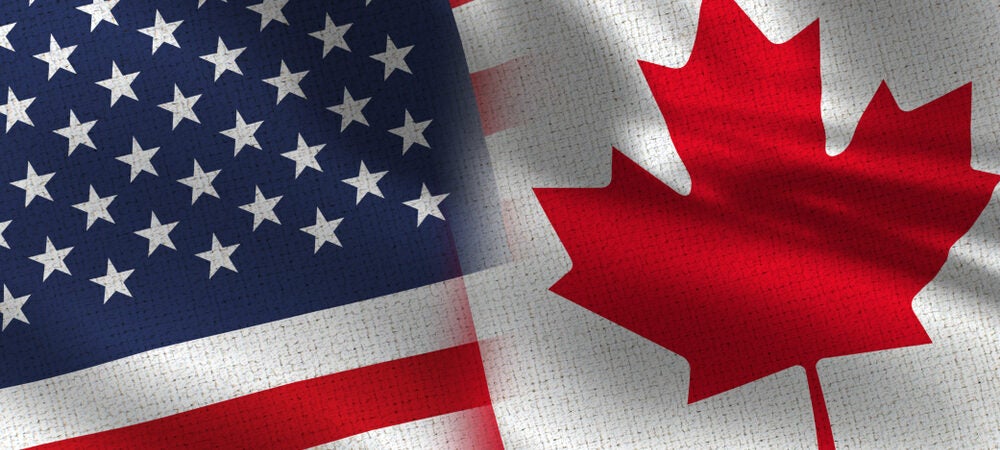FACT: The U.S.-Canada trade relationship is the largest in world history.
THE NUMBERS:
Top six U.S. goods + services trade partners in 2021*
* Estimates for services based on the nine months available data. Goods trade are full-year figures.
WHAT THEY MEAN:
Then-President Reagan in September of 1988, eloquently closing as he signs the U.S.-Canada Free Trade Agreement: “Let the 5,000-mile border between Canada and the United States stand as a symbol for the future. No soldier stands guard to protect it. Barbed wire does not deface it. And no invisible barrier of economic suspicion and fear will extend it. Let it forever be not a point of division but a meeting place between our great and true friends.”
A generation into this future:
(1) Canada accounts for a ninth of all U.S. goods trade and (with some uncertainty as final services data aren’t yet in) about a fifteenth of services trade. The total places Canada slightly ahead of Mexico and China as top trade partner, and thus as the largest single trade relationship in the world. Matching this against history is tricky — should one compare last year’s $740 billion in U.S.-Canada trade to the $95 trillion in world GDP? To the $20 trillion in trade flows? To something else? But in the simplest sense, counting the nominal value of paper dollars or shiny loonies, last year’s U.S.-Canada relationship was the largest two-way trade relationship ever.
(2) Canada is the top U.S. export market for 29 states, and second-ranked for another 13. Canadians buy more American goods ($308 billion in 2021) than the 27 EU countries ($272 billion) combined; or, alternatively, nearly as much as China ($150 billion) plus Japan ($75 billion) plus Korea ($66 billion) plus Hong Kong ($30 billion) plus Taiwan ($37 billion). Only the U.K. is a larger buyer of American services.
(3) President Reagan seems to have low-balled the border length a bit; by the International Border Commission’s estimate, it is 5,528 miles, including 4,000 along the “continental U.S.” northern border and 1,500 on Alaska’s western and southern frontier. Either way, as events elsewhere in the world continually remind us, a friendly, unguarded, border-cum-meeting-place, where the most troubling events are COVID-related tourism interruptions and temporary blockages of auto-parts shipments, is (a) a rarity in history, (b) something to greatly value, and (c) a heritage to protect.
Ed Gresser is Vice President and Director for Trade and Global Markets at PPI.
To read the full commentary from the Progressive Policy Institute, please click here.


